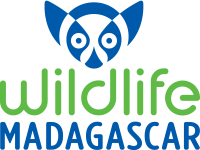Vanessa Olinda
Education Specialist—ASSR Site



Vanessa has several years of experience in training, needs assessment and planning, social protection, and environmental education. Her research has focused on the impact of environmental education on ecological behaviors and on cultural transformations and social practices. She has a varied background reflecting an interdisciplinary approach, focused on sustainability, culture, and development issues, with the aim of better understanding contemporary social and environmental dynamics.
She is an active member of the Malagasy Red Cross, and was previously the Vice President of the Toamasina II District (2020), and Regional Vice President of the Young Red Cross of Atsinanana (2022). Since 2023, she has been part of their national emergency response team, involved in needs assessment and planning missions, distribution, and first aid. Vanessa gained work experience as a training coordinator and site supervisor for the Intervention Funds for Development’s Productive Social Nets program in Amparafavola (2024-2025), as well as the Green Touch project of the Malagasy Red Cross (2023), focusing on evaluating the impact of climate change and its effects on community resilience. In 2021, she facilitated the Improved Stove Use project with the Association FIKRIZAMA, engaging local communities on energy transition and reducing deforestation. Between 2019 and 2020, she also worked as a tour guide for the MAD’EX agency in Tamatave, developing her communication skills.
Vanessa has Bachelor’s degree and is currently preparing two Master’s degrees at the University of Toamasina: one in Science, Environment, and Sustainable Development, and the other in Social and Cultural Anthropology.
Q&A with vanessa
What draws you to a career in wildlife conservation?
For me, wildlife conservation is an essential mission: to act, to preserve, to educate, to raise awareness, and to pass these on to future generations to ensure sustainability.
Who or what inspires you?
The impact of early environmental education is lasting and expansive. It affects family, community, and national spheres.
Is there a book has influenced you or made a strong impression?
Fauna and Flora of Madagascar by Lucile Allorge-Boiteau and Maxime Allorge. It is an essential reference for understanding the exceptional biodiversity of Madagascar.
What is your favorite food?
I love rice with chicken in coconut milk; it’s a traditional Malagasy dish that I find absolutely delicious.
What is your favorite movie?
The Woman King, directed by Gina Prince-Bythewood. I really like this film for several reasons: Strong and brave women, a true and inspiring story, with a strong message.
What is one of the coolest experiences you’ve had in your work?
One of the most remarkable experiences of my job as a tour guide was learning new things every day. This allowed me to better respond to my clients’ questions, even the most unexpected ones. Being a good guide is not just about knowing the places; you also need to be an open person, capable of discussing everything from social and cultural dynamics, economics, and environmental topics. I love sharing my knowledge and exchanging ideas with visitors. Every encounter is an opportunity to learn and to showcase Madagascar in all its aspects. This kind of exchange excites me because it’s not just about showing places, but about conveying knowledge, creating connections, and providing an authentic experience.
If you could travel anywhere in the world, where would you go?
I dream of visiting Kenya, especially the Maasai Mara, a place that fascinates me with its exceptional natural and cultural richness. I’d love to witness the Great Migration, observe the ‘Big Five’ in their wild habitat, and experience a hot air balloon safari at sunrise to experience the vast savannas under a magical and soothing light.
Besides lemurs, what is one of your favorite animals, and why?
Besides lemurs, I would say bees are my favorite. They are among the most fascinating animals from an organizational and behavioral perspective. Bees represent a remarkable model of social organization, where each individual plays a specific role according to the needs of the colony. Their versatility, effective communication, and collective risk management reflect dynamics similar to those of human organizations. Based on solidarity, shared leadership, and a sense of duty, their functioning embodies exemplary collective intelligence. This natural model offers valuable lessons in management, governance, and sustainable development.
Why do you care about Madagascar and its wildlife?
The endemic species of Madagascar are unique biological treasures. Their disappearance would be an irreparable loss. Protecting wildlife means protecting Madagascar. By protecting animals, we also preserve forests, water, and natural resources.
